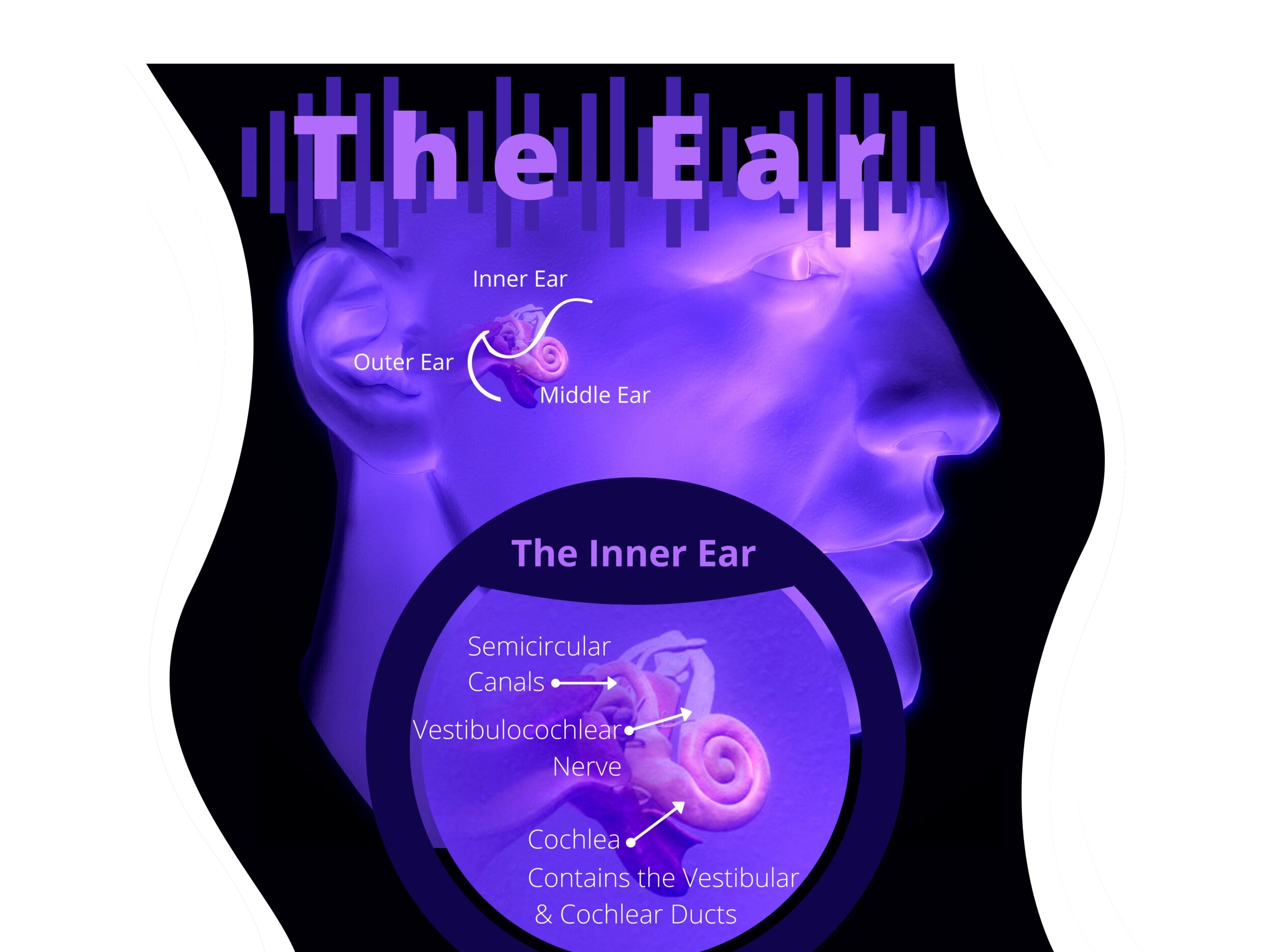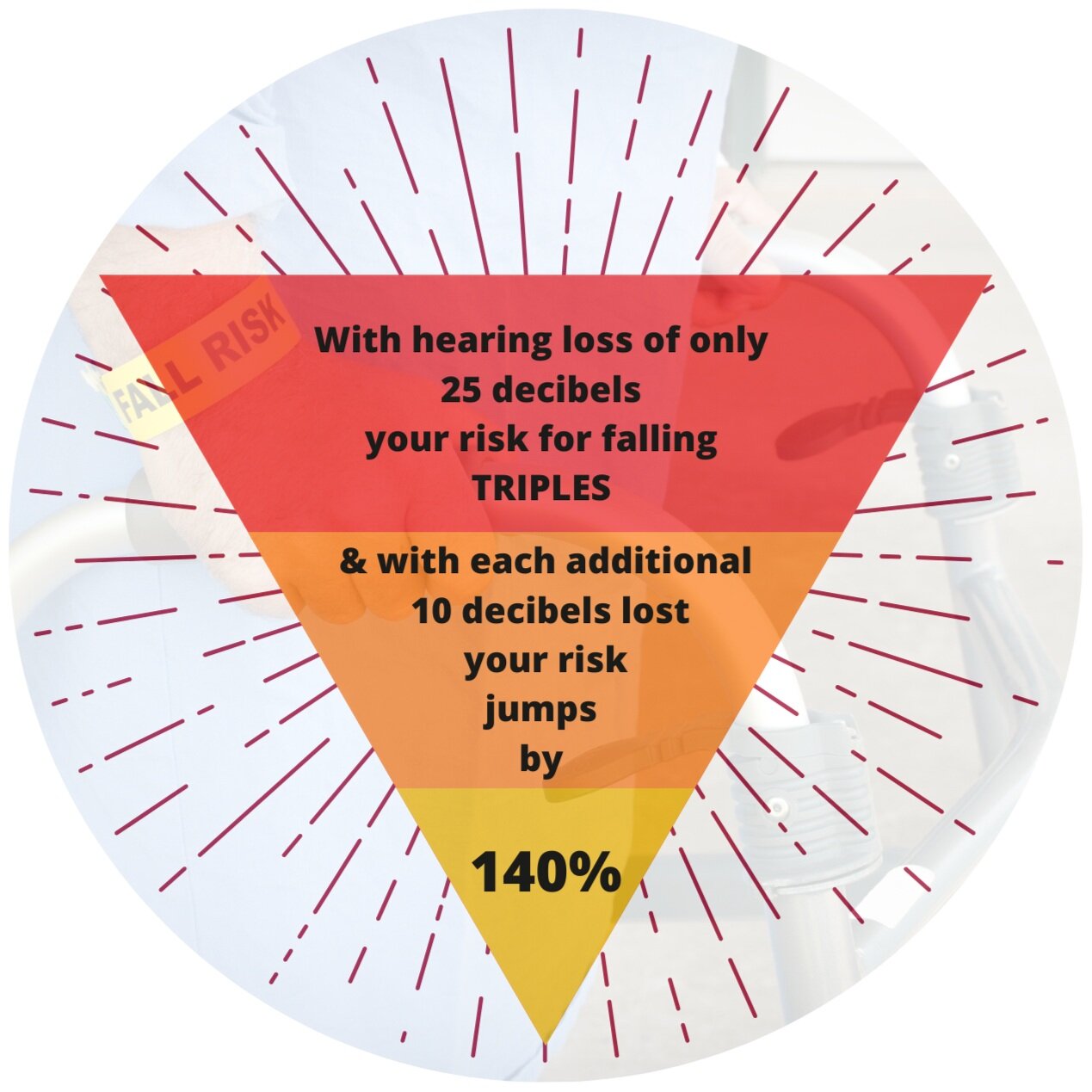Could the Secret to Aging With Grace Be Through Quality Hearing?
The Sobering Reality of Aging
Two weeks ago I received the call.
My heart stopped and my stomach crept into my throat as my mom told me the events that took place. My 85-year-old father had fallen and was in emergency surgery for a partial hip replacement.
Falling is a real fear for the elderly. Sadly the commercials don’t capture the seriousness of the situation, if they did you wouldn’t hear the comedy around, “Help. I’ve fallen and can’t get up.” If we’re being honest, there is a bit of a cheese factor to the commercials but the problem is real and no laughing matter.
The National Council on Aging (NCOA) discovered for older adults, those 65 and over, falls are the leading cause of fatal injury and nonfatal trauma-related hospital admissions. In fact:
One in four Americans aged 65 and over falls each year.
Every 11 seconds an older adult is treated in the emergency room.
And every 19 minutes an older adult dies from a fall.
Every year, this equates to more than 2.8 million injuries from falls being treated in emergency rooms with over 800,000 hospitalizations and more than 27,000 deaths. [1]
My concern goes beyond that of my aging parents. As an audiologist specializing in care for the elderly, I am completely vested.
Fortunately, I come bearing good news.
Hearing Loss Has A Surprising Impact on Overall Health
(Ok, so we’re not quite to the good news yet. Stay with me.)
Sometimes - well, ok, it’s really most of the time -- as we grow older our bodies demand more attention. And the squeaky wheel truly does get the grease, so while aches and pains can cause one heck of a racket, other elements sneak up on you.
Hearing is one that often goes quietly - pun intended. It is one of your basic five senses. So it’s no wonder losing your once acute sense of hearing can quite literally cause a systemic collapse.
It’s true. So often you don’t realize the source of your frustration and declining health is hearing loss and the problem goes untreated. If you’re experiencing any degree of hearing loss you might better recognize the side-effects like:
Withdrawal from social interactions
Depression
Loss of independence
Higher blood pressure due to stress
Even dementia
You might be wondering how these could be side-effects of hearing loss. I will explain momentarily, but first, let me give you a brief explanation of how the ear works.
Breaking Down the Ear
The ear has three different parts each playing a key role in our ability to hear.
The outer ear or external portion of our ear gathers sound waves and aims them toward the eardrum.
The middle ear begins at the eardrum and transmits the vibrations of sound waves through three small bones (ossicles).
The inner ear is where sounds are converted into nerve impulses in the cochlea and sent on to the brain.
Your inner ear is where the real magic happens.
The nerve impulses which happen at the cochlea result in our ability to hear. And the vestibule and semicircular ducts contain receptors which just so happen to be responsible for your balance or lack thereof.
All Hearing Loss Isn’t Created Equal
As you might well know, there are several different causes of hearing loss.
Conductive hearing loss is usually treatable and doesn’t always require long-term treatment or help such as hearing aids or other treatments including surgery. The solution depends on what has caused your conductive hearing loss. It can occur from things like ear infections that block the fluid of your middle ear, thick wax build-up obstructing your ear canal of your outer ear, and head trauma caused by injuries.
Sensorineural hearing loss, unfortunately, is permanent. It results from issues like Autoimmune Inner Ear Disease (AIED), exposure to deafening noise, and presbycusis which happens over time as we age, and our inner ear structure gradually weakens.
Regardless of the cause of your hearing loss, you are at an increased risk of serious complications such as depression, anxiety, dementia, and falling. Which brings me back to the side effects of hearing loss and how...
Aging Gracefully and Quality Hearing Go Hand-In-Hand
Forgive me for being a bit melodramatic, but let’s face it, getting old carries a pretty negative and depressing stigma of a failing body and mind. It’s all hogwash!
Though the physical decline can be real - that’s life - focusing on what can be improved can make all the difference in the world - and that’s living! Holistically speaking, I believe improving your hearing can literally improve your overall health and well-being and significantly reduce crippling fears like that of falling.
You can see how it’s a downward spiral that affects your entire wellbeing. But where does it end?
Assessing Your Fall Risk
Granted there are many different reasons why you might end up falling. But would you believe studies are finding that one common factor has to do with damage to the inner ear?[3]
As you now know, your inner ear controls both your hearing and balance functionality. And damage to either system can result in an increased risk of falling.
You might think damage to the vestibular system would be more detrimental. It is after all responsible for providing your brain information concerning motion, head position, spatial orientation, as well as motor functions that allow for balance, stabilization, and posture.
Suffering from a balance disorder you would be more likely to experience one or more of the following side-effects: dizziness, vertigo, blurred vision, confusion, fainting spells, difficulty with depth perception, and environmental awareness such as perceiving the proximity of nearby objects or the change in terrain. And understandably, all of these pose a significantly increased risk of falling.
The crazy truth is...
Hearing Loss Triples Your Risk of Falling
A study done by Dr. Frank Lin from the Johns Hopkins School of Medicine discovered with even just a mild degree of hearing loss of only 25 decibels your risk for falling triples and with each additional 10 decibels lost your risk jumps by an alarming 140%. [2]
The reasons may be more obvious than you would expect. The most simple reason being hearing loss reduces your awareness of your environment because you literally can’t hear someone or a pet approaching and become startled or even collide.
But science doesn’t yet offer a single reason as to why there’s such a drastic increased risk of falling. Other contributing factors may include:
Increased cognitive load...simply put, hearing loss strains the other senses as they try to compensate and this overloads the brain and reduces your ability to pay attention to everything going on around you.
Decreased awareness of where you are in space. Neurologically you're off-kilter.
Bottom line, if you compromise either one of the inner ear components and you have the leaning tower of… well, you get the idea.
All Hope Is Not Lost… You Can Combat Hearing Loss and It’s Side-Effects
Let me repeat that just in case you didn’t hear me, ALL HOPE IS NOT LOST! Okay, so here’s the good news...
Expert care from an audiologist and quality hearing aids can very likely alleviate your suffering.
But listen up, you know that saying “You get what you pay for.”? Well, it’s never more true than in the realm of audiology. Here are my two cents worth:
Find an actual Doctor of Audiology and…
Invest a little bit of money and purchase the right set of hearing aids for you
It’ll be worth it. For starters, you won’t have to suffer the obnoxious high-pitched screeching and other frustrations of hearing aids when they haven’t been programmed correctly for your needs nor fit you properly.
More importantly, look at these statistics from a study of patients who received proper care and use of hearing aids. In the first three years, they were at a decreased risk of being diagnosed with or treated for the following[4]:
Depression or anxiety by 11%
Fall-related injuries by 13%
Dementia, including Alzheimer’s disease, was a whopping 18% lower
Hearing loss and falls can be an unfortunate part of your story as you age. But you’re not helpless. There are plenty of preventative measures and plenty more treatment options you can take to improve your conditions and take back your life.
Aging can be done gracefully; it just requires a bit of finesse!
Did any of this strike a chord with you?
Maybe it's time you schedule an appointment with your local trusted audiologist. If you are over 65 it’d be worthwhile to have an annual hearing test to ensure your ears are in tiptop shape.
But also, depending on your symptoms - and how long it’s been since you’ve last shared these with your primary care physician - it might be a good idea to schedule an appointment with them as well.
Oh, and my dad… he’s doing great. A little stubborn but aren’t we all to some extent? Just make sure you use your fight to fight for life!






